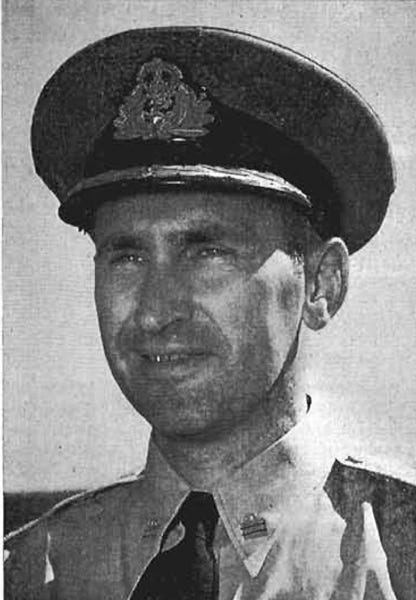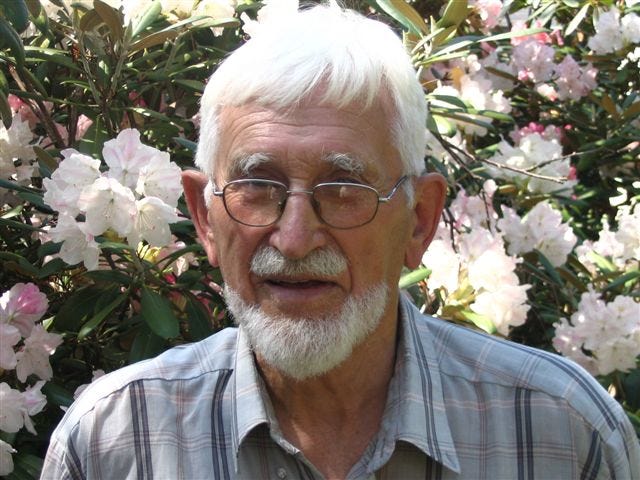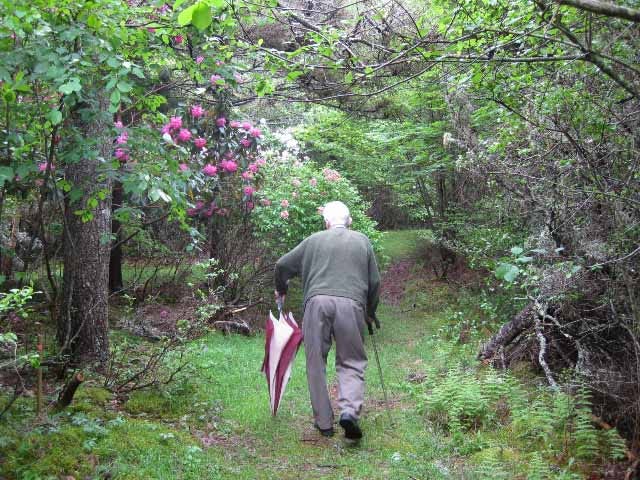The Endgame
Newsletter #25 - Something completely different
This occasional newsletter looks at issues and events from the endgame point of view. The endgame is a chess concept. In the endgame only a handful of pieces are left on the board. Few moves remain. Victory or defeat is close. Options are limited and diminishing.
Toronto, May 21, 2023
Something completely different
Captain Dick Steele played the endgame very well.
He had a distinguished career in the Canadian navy. He fought in World War Two. He commanded a Tribal-class destroyer, HMCS Nootka, during the Korean War. He was Naval Attaché in Canada’s Washington embassy. He commanded Cornwallis naval base in Nova Scotia. He was Canadian naval adviser to NATO. He was awarded the Distinguished Service Cross.
And then, in 1969, when he was 54, Dick retired from the navy and became a rhododendron breeder. He set up Bayport Plant Farm in Riverport, near Lunenburg in Nova Scotia. He sat in a shed at the back of the thirty-acre farm developing hybrids. A constant stream of admirers made their way to the shed for conversation and advice about gardening and just to sit with him. He knew a lot and was good company. Everyone called him Captain Steele. In 2004 Captain Steele was awarded the Order of Canada, not in recognition of his naval career, but for services to horticulture.
When we bought our house in Nova Scotia, in 1998, and started thinking about a garden, our friend Marjorie Harris, who knows a thing or two about gardening, said, “Oh, you’re going to Nova Scotia, and you want a garden, you must talk to Captain Steele.” We went to Bayport Farm, were directed to his shed at the back, and introduced ourselves. By then he was well into his eighties. He had a white beard. He walked with a cane. He was welcoming, gracious, funny, enthusiastic, and kind. We became friends.
Captain Steele helped us with initial planning of our Nova Scotia garden. He put rosa rugosa along the sea shore. He oversaw the planting of magnolia trees, holly, hydrangeas, a dawn redwood, a heather bed, and, of course, rhododendrons. He came over often, mostly to chat, and not just about gardens, over a cup of tea and a piece of cheese. He brought the cheese.
And then one day, in the summertime, he rang up with the best invitation ever. “You know,” he said, “once a year, in the Fall, I take a handful of people to Labrador to collect rare alpine plants. Interested in coming?” You bet we were interested. We weren’t particularly passionate about collecting rare alpine plants, but we loved Captain Steele.
A small convoy of cars left one September day from Nova Scotia’s south shore headed for Labrador. To Sydney to catch the ferry to Port aux Basques. Up the west coast of Newfoundland to St. Barbe to catch the ferry to Blanc Sablon on the eastern edge of Quebec. From Blanc Sablon, across the border into Labrador. A short drive to L’Anse Amour, to stay at the B&B run by Cecil and Rita Davis. In the morning, before we set off looking for plants, Cecil asked, “What do you want for dinner tonight, fish or meat? Should I go fishing or hunting?”
We went to Labrador twice with Captain Steele. He was in his early nineties, but nothing deterred him. I would watch him suddenly stop his car and head off across the tundra: he’d glimpsed something in the distance that he thought worth investigating. I watched him clamber up a hill to see what was on top and come down twenty minutes later with his white beard red with blood from black fly bites. Once he led us to a small cairn thirty feet or so from the road. “I built this for Johnny Meaugher,” he said. Johnny, recently dead, had been on previous Labrador trips. Dick pulled out a bottle of whiskey, gave us each a swig, and addressed the cairn. “Johnny, I told you we’d be back.”
Captain Steele died in March, 2010. He was 94. He was planning and dreaming to the end. Still looking to the future. Still bold.





I have regretted few things in my gardening life, bit mt going on Capt Steel’s last trip botanizing in Labrador is a major one. I spent a good part of my childhood in Labrador and it’s where I developted a fascination with native plants. It led to a wonderful life among them and that I never regret. Thanks
Great tribute, also to people who carry the flame to the end. Hope for the future.